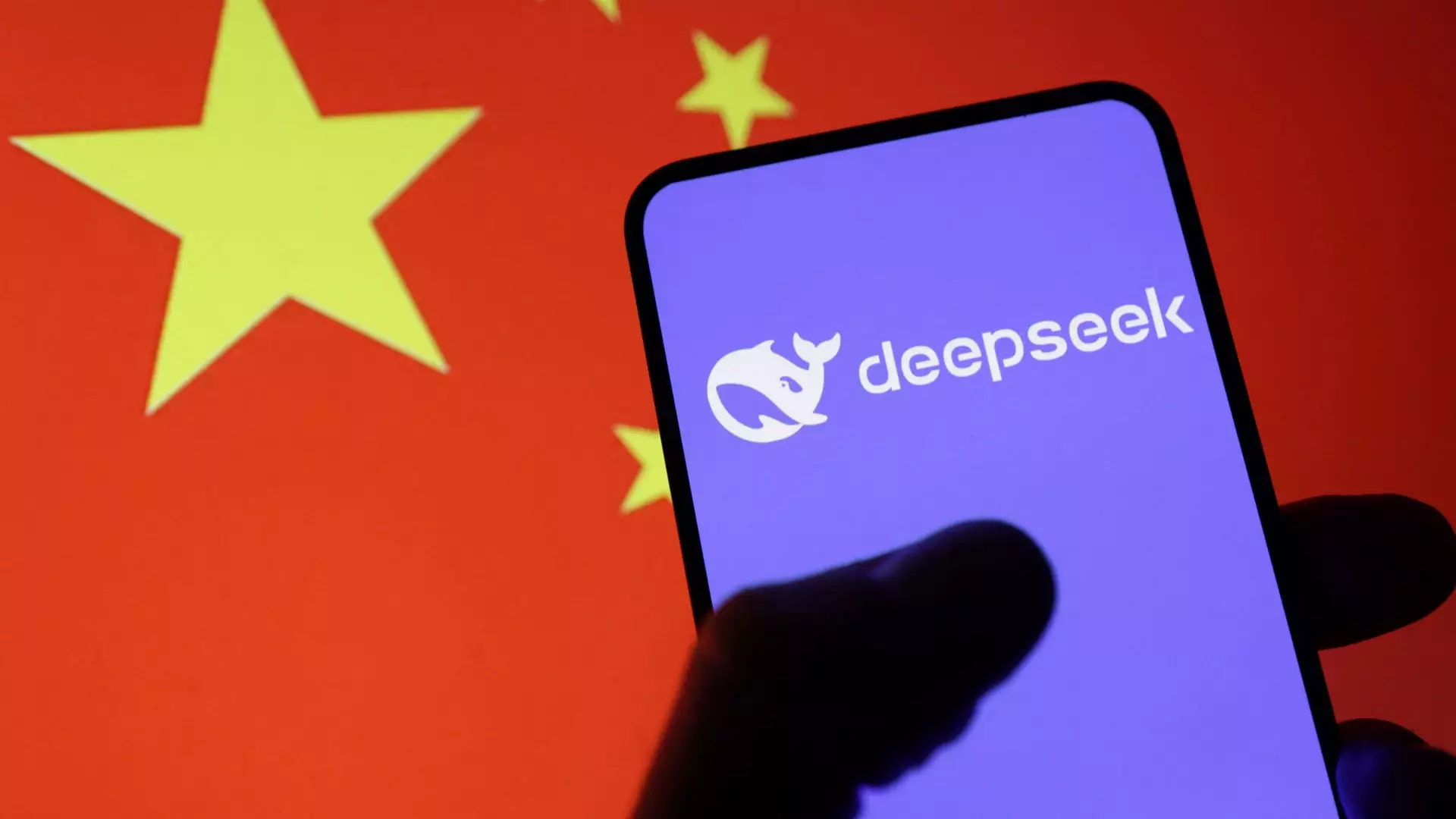In an unexpected turn of events, China’s AI startup DeepSeek has rapidly gained attention from tech giants and investors alike, sparking a flurry of reactions from prominent leaders in the industry. As this newcomer emerges from the shadows of obscurity, its recent innovations in AI technology have created ripples not only in financial markets but also in strategic discussions around artificial intelligence development. This situation raises pivotal questions about the competitive landscape and the future of AI research, particularly in the context of U.S.-China relations.
DeepSeek’s mobile application climbed to the summit of the Apple App Store, surpassing even established players like OpenAI’s ChatGPT, indicating a significant consumer interest and market validation of its capabilities. Reports surrounding the cost of developing DeepSeek’s groundbreaking R1 model—estimated at just $6 million—mark a game-changing moment for the AI community. This starkly contrasts with the hundreds of millions often spent on similar models in the United States, leading to a decline in market share for well-known chipmakers such as Nvidia and Broadcom, which experienced a staggering $800 billion market cap loss following the revelations surrounding DeepSeek.
The reaction from various CEOs in the tech sphere provides insights into the broader implications of DeepSeek’s emergence. Microsoft’s Satya Nadella hailed the startup for its “real innovations,” indicating an acknowledgment of the disruptive potential it holds. Palantir’s Alex Karp emphasized the necessity of a collective response from all nations to ensure the safe development of technology, highlighting the geopolitical stakes involved in AI advancements. Karp’s comments about the ethical frameworks surrounding AI technologies reflect a growing awareness and concern among tech magnates regarding its impact.
Similarly, Apple’s Tim Cook addressed the efficiency-driven nature of innovation that DeepSeek presents. Despite holding a record gross margin, his remarks suggest that the integration of hardware and software advancements remains paramount, emphasizing Apple’s commitment to maintaining its edge even as competition escalates. This sentiment resonates with Meta’s Mark Zuckerberg, who maintained a measured perspective, suggesting that the implications of DeepSeek should be viewed through a lens of ongoing trends rather than isolated events.
As tech earnings season approached, the timing of DeepSeek’s announcement could not be more critical. The backdrop of President Trump’s second term hints at a renewed focus on bolstering domestic capabilities against Chinese advancements in AI. As Trump announced ambitious initiatives, such as the Stargate project, the competitive narrative sharpened, reinforcing U.S. interests in AI superiority.
The remarks from Microsoft, particularly Nadella’s assertion that we should expect to see AI scale at lower costs, reflect the shifting paradigms within which tech companies operate. He hinted at a gradual commoditization of AI technologies, which presents opportunities for businesses and consumers alike. The philosophical perspective of innovation as a cyclical process is an important takeaway, with an emphasis on continuous improvement.
Investor sentiment following DeepSeek’s unveiling indicates a crucial marker on the map of contemporary economics within tech. The decline experienced by chipmakers after disclosure of DeepSeek’s cost-effective approach to model development epitomizes the direct market implications of innovation. While some may view this development as alarm bells ringing for American technology, others—including LinkedIn co-founder Reid Hoffman—urge a more tempered response. He suggests that rather than panic, this serves as an impetus for American companies to accelerate their innovations and plans.
OpenAI’s Sam Altman echoed a similar sentiment during a recent address, referring to DeepSeek’s capabilities as a “great model” while recognizing the challenge it poses to U.S. incumbents. Altman underscored a call for a “wake-up call” for U.S. tech, a message that resonates not only in the boardrooms of tech companies but also among policymakers focused on sustaining democratic advancements in AI.
As DeepSeek rises to prominence, the dynamics of the AI industry continue to evolve. This shift is not merely about competition; it encompasses ethical considerations, economic implications, and strategic responses that tech leaders must navigate thoughtfully. The dialogue initiated by responses from industry giants serves as a stark reminder of the rapidly changing landscape of artificial intelligence—a domain where innovation drives efficiency but also poses challenges that must be addressed collaboratively and thoughtfully. As the competition intensifies, the focus on responsible AI development and a comprehensive understanding of the geopolitical implications will shape the contours of the future tech industry.

